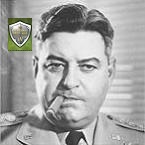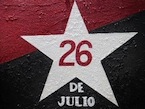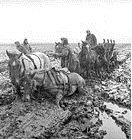X.ray
Posts: 35
Joined: 4/18/2009
Status: offline

|
quote:
ORIGINAL: Curtis Lemay
quote:
ORIGINAL: X.ray
Why can't it be made that units can react to such info? For example, if a unit was moving through a path but stopped because a retreating enemy unit is now on its way due to a recent battle, then the unit should be able to choose to fight the enemy unit, or stop movement and defend current position, or retreat.
It probably can. But look at the tiny list of options you made: That's only a micro-subset of what the PO has at its disposal. And think what a crummy player the PO is! No human gets to intervene in the units' movements. (Which is my other issue with WEGO: brainless wargaming - kind of like letting the PO control all your formations (which you can now do, by the way)).
Thanks Bob for your patience. And forgive me being a dumbass - I still couldn't understand, why "No human gets to intervene in the units' movements"? Is it because there are some considerations that make it impractical, or because the game designer wouldn't design it that way? In my simple mind the human can and should get to intervene in the units' movements when certain things happen, e.g. unexpected enemy enounter, original attack plan gets cancelled because enemy is knocked out by other units, etc. And it should not be difficult to achieve - the player turn just needs to automatically pause on the round when such things happen, as if it now pauses on the round when the median battle completes. So simply speaking the player turn will have more stopping conditions than just finishing combats.
quote:
ORIGINAL: Curtis Lemay
quote:
ORIGINAL: X.ray
How about the scenario that Lobster mentioned, i.e. the active player can use a moving unit to block the retreating path of enemy units even though by the time the battle happens the moving unit shouldn't have arrived (say the battle ends in round 2, but the moving unit needs to use 100% of its MP to get to the position). It seems to me only by making movement simultaneous with battles this could be addressed. Not sure if I missed anything.
That's not even an issue till combat. And then it is addressed by the BTS system.
I finally got what you meant by "it is addressed by the BTS system", as below
quote:
ORIGINAL: Curtis Lemay
If it takes up a position to block a defender's retreat, and the unit is destroyed, instead, because of it, then it will increase the resulting BTS.
So even though the blocking unit does not participate in the combat, if its existance played a role in the final combat result, the clock would run as if it has participated in the combat, and the combat would actually start in the round after this blocking unit arrive, instead of before (when all actual attacking units arrive), correct?
Now here's the question:
If the target unit is not destroyed - i.e. the blocking unit is too weak to block the way - would the BTS be increased the same way as the case above? You didn't mention, but I would assume yes, given the blocking unit would have effectively participated in the combat in this case as well (though not successful).
Then there's the thrid possible outcome: the target unit is destroyed right away under the attack (it didn't even get the chance of trying to retreat). In this case, the blocking unit would not have to participate in the combat, then does the BTS get to increase as a result of the presence of the blocking units?
If yes, that means you should not move any units adjacent to your target attacking hexes, other than the attacking units, because the non-participating units will most likely cost you additional combat rounds (unless the movements cost fewer tactical rounds than the combat itself) due to the potential impact on the combat results caused by their presence (in fact, it should also include the presence of their ZOCs).
If not, that means the attacking units would have 100% correctly predicted the result of the combat before they decide when to launch the attack, i.e. they need to know the enemy had no chance in order to start the attack in say, round 2, instead of round 8 when the blocking unit arrives. If they predicted it wrongly (i.e. enemy not vaporizing but instead retreating), then the enemy would have fled in round 3, way before the blocking unit arrives in round 8, thus causing the time travel issue that Lobster mentioned.
To me the former makes more sense, but from what you said above it sounds like the latter is currently how the new system is designed. Just want to be clear.
Thanks again.
|
 Printable Version
Printable Version















 New Messages
New Messages No New Messages
No New Messages Hot Topic w/ New Messages
Hot Topic w/ New Messages Hot Topic w/o New Messages
Hot Topic w/o New Messages Locked w/ New Messages
Locked w/ New Messages Locked w/o New Messages
Locked w/o New Messages Post New Thread
Post New Thread